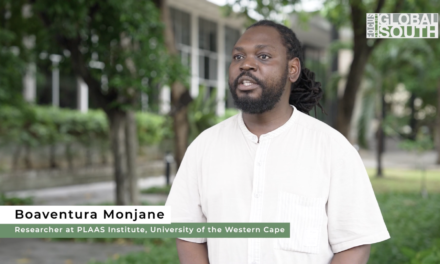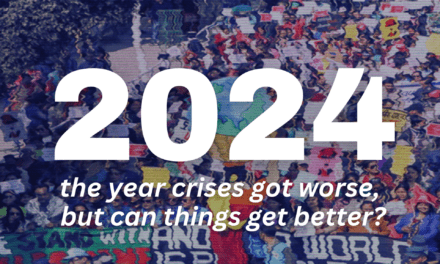The eighth day of March has traditionally been celebrated in different parts of the world as International Women’s Day to carry on and strengthen the spirit of women’s activism that first made huge waves during the 19th and 20th centuries amid various struggles for women’s labor rights and gender equality.
In the Philippines, the entirety of March is celebrated as National Women’s Month. This year, there were various activities organized by different sectors and peoples throughout the country not only to honor the history of women’s activism but also to recognize their important contributions and call to dismantle barriers to gender equality. But comparing the commemorations done by the government, private sector, as well as civil society and social movements reveals an obvious contrast in form and tone.
On the one hand, the government sought to highlight the country’s “progress” in narrowing gender gaps as well as the need to sustain the actions that allowed this progress to materialize. To support this claim, they cited the 2024 Global Gender Gap Index (GGGI) Report by the World Economic Forum (WEF), which claims that the Philippines, ranked 25th globally, “remains the most gender-equal country in Asia” despite dropping nine places from its 2023 position.
Meanwhile, various private sector institutions—including SM Supermall, Ayala Corporation, Robinsons, and Aboitiz Foundation—emphasized the importance of empowering women through entrepreneurship, technology and innovation, and gender-inclusive workplaces and financing as key strategies to address gender inequality and combat poverty.
However, these mainstream narratives gloss over the reality that gender inequality, discrimination, and violence are perpetuated and reinforced by the government’s pro-corporate policies as well as the systematic repression of those who resist these policies. Feminist activists and women’s rights organizations and movements have courageously gone against the tide to expose the dire situation of women in the country, despite threats to their safety and wellbeing for the work they do.
Despite numbers showing that the Philippines is the most gender-equal country in Asia, the negative impacts of the government’s economic policies on women’s rights and welfare cannot be discounted. The Marcos-Duterte government has further advanced various aspects of the neoliberal and extractive agenda that threaten to worsen the dispossession, hunger, and poverty among women from the most marginalized sectors and peoples, while also increasing the burdens of care work. Meanwhile, social justice policies and redistributive programs that are imperative to women’s welfare are being disregarded if not blatantly violated or used for political leverage.
Commercialization of aquatic resources
One clear manifestation of the government’s corporate bias is the controversial August 2024 ruling of the Supreme Court’s First Division that upheld a Malabon Regional Trial Court decision allowing commercial fishing vessels to operate within the 15-kilometer municipal water zone, previously reserved for small-scale fishers under the Philippine Fisheries Code of 1998. The ruling also declared the preferential access of small-scale fishers over municipal waters as unconstitutional. This will threaten the livelihood and food security of millions of fisherfolk in the country, including women who comprise 30 percent of the sector or around 1.5 million Filipino women.

Boats along Manila Bay at sunset. Manila Bay is a major fishing ground, with fisheries and aquaculture as the main source of livelihood for coastal communities. But its resources have been depleted due to overfishing, reclamation, pollution, and damage. Photo by Gerald Mondala. Wikimedia Commons.
The fish captured by commercial fishers are mostly brought to major regional fish ports in the country, which means that more harvest will be diverted away from small-scale post-harvest facilities where most women in municipal fisheries work and get their incomes. Furthermore, as traditional managers of household finances, women are often responsible for overcoming financial deficits in case of low catch. In many cases, they would take out loans that result in entrapment in debt cycles, take on work in commercial fish processing facilities with poor working conditions, or take on informal work outside of traditional value chains that have extremely low wages, lack social protection, and are highly insecure.
Digitalization of agriculture
Another key policy of the Marcos government in the agriculture sector is the promotion of digitalization. The government is now testing and will eventually disseminate technologies that control watering and irrigation, assess crop health, deliver targeted treatments (e.g. fertilizers and pesticides), monitor pests and disease, determine soil health and composition, and gather climate and weather patterns, among others. These proprietary technologies would appropriate and commercialize traditional knowledge systems for which women in peasant, Indigenous, and fishing communities have traditionally served as custodians.
Corporations who own these technologies could sell off the data they gather from farmlands, forestlands, and Indigenous territories to other businesses that could profit from these information, including crop insurance companies and agricultural input manufacturers. Worse, the trading of these critical data could facilitate land and resource grabbing as companies, investors, and speculators could more easily identify which lands and bodies of water are rich in resources and are thus most profitable.
Technology-driven resource grabbing would further threaten women’s already insecure access to resources. The glaring gender gap in agricultural land ownership persists in the Philippines, despite policy reforms that recognize and uphold women’s right to land. According to the Philippine Statistics Authority, women only comprise 30 percent of the agricultural population with ownership or secure land rights, whereas men constitute the majority at 70 percent. This can be attributed to the lack of formal recognition of women as farmers, owing to the perception of their contributions as mere extensions of their domestic work. This means that their valuable work remains unaccounted for in official government statistics and that they would have no direct claim to compensation when their land is taken by the government or by a private investor. They are also less likely to be included in decision-making about how the land is to be classified and used and are thus more susceptible to displacement and exploitation.
Fast-tracking extractivism
The Marcos government has also made efforts to facilitate mining application processes—a policy direction that builds on the previous Duterte government’s lifting of the nine-year moratorium on new mining permits in 2021. Last year, the Department of Environment and Natural Resources (DENR) said that it planned to streamline the country’s mining application process through a number of reforms.
The effects of these reforms are already being felt on the ground. According to Lilak – Purple Action for Indigenous Women’s Rights, there has been a significant rise in mining applications being submitted to the government, and mining companies have entered Indigenous communities more aggressively. The influx of mining companies in Indigenous territories has profound impacts on women. When Indigenous communities are forced out of their territories and resources become more scarce, Indigenous women’s unpaid care work multiplies. The absence of public utilities in areas where they reside also means that they are required to walk longer distances and spend more time collecting water, fuelwood, and food to provide for their families. This increases their vulnerability to sexual harassment and abuse since they usually have to do these tasks before sunrise and walk through secluded areas.
Undermining regulatory frameworks
While mining application processes are being streamlined, regulations that protect human rights and the environment are in many cases abused and merely regarded as window dressing. For instance, processes to obtain Indigenous peoples’ free, prior, and informed consent (FPIC) are often used by corporations and investors to coerce, manipulate, and divide communities. This has resulted in further marginalizing Indigenous women, many of whom are, to begin with, already largely underrepresented if not excluded from their Indigenous political structure’s decision-making processes.
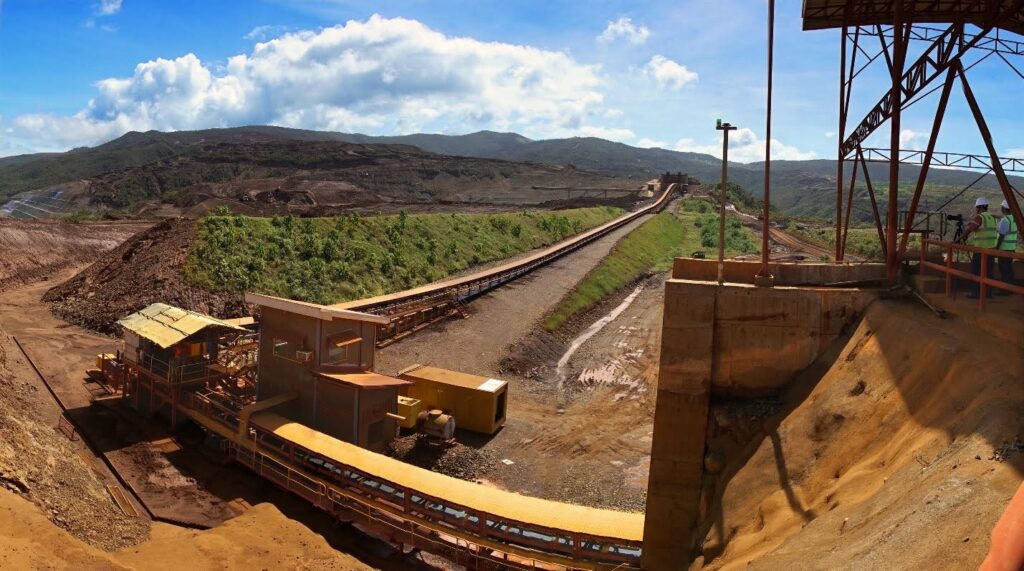
Taganito Mining Corporation’s Nickel Operation in Surigao del Norte province. The Philippines has one of the largest reserves and resources of nickel, a crucial component in electric vehicle batteries. Photo by Ryan Dael. Wikimedia Commons.
The already overly abused FPIC process is being further undermined by the Marcos administration to fast-track industrial projects. According to the Legal Rights and Natural Resources Center’s (LRC) 2024 State of Indigenous Peoples Address Report, the government has railroaded revisions to the FPIC guidelines, including cutting short FPIC for energy projects and introducing new FPIC protocols for carbon forestry initiatives. One critical development that is intensifying the pressures of extractivism on Indigenous territories is the global rush for critical minerals to support energy transitions. LRC’s report finds that “[about] 56% of the government’s designated Competitive Renewable Energy Zones (CREZ) will potentially overlap with Indigenous territories.”
Solidarity and resistance
Despite the formidable challenges that are exacerbating gender inequality, discrimination, and violence in the country, women remain unfazed and have continued to put up strong resistance to amplify demands towards realizing gender-sensitive, -inclusive, and -just transformation.
In the days leading up to and on the 8th of March, women took to the streets to call attention to pressing economic, social, and political issues in the country. On March 4, more than 300 Subanen women from Midsalip Subanen Ministry Inc. (MSMI) together with Lilak – Purple Action for Indigenous Women’s Rights and the Women and Mining Working Group (WMWG) of Alyansa Tigil Mina (Alliance Against Mining) marched in the Municipality of Midsalip in Zamboanga Del Sur Province to call on the government to carry out its mandate of protecting the environment and Indigenous peoples’ rights over their ancestral domains amid increasing threats posed by mining corporations. The Subanen women were also joined by Indigenous women from many other communities in the southern island of Mindanao. This gathering served as a critical moment in the struggle against extractivism as it provided a platform for cross-people solidarity and for the most marginalized voices in the struggle to not just explain their opposition to mining but also to elucidate on what genuine development means from Indigenous women’s perspectives and practices.
On March 7, various women’s organizations held protest actions in different parts of Metro Manila. In front of the Department of Agriculture in Quezon City, groups under the umbrella of World March of Women (WMW)-Pilipinas voiced their resistance to the government’s “development” agenda that is largely driven by the exploitation of resources by big corporations and foreign investors at the expense of the rights of peoples, most especially rural women. As part of their symbolic action, the women pitched tents which have now become an international symbol for people displaced by climate disasters, corporate land grabbing, and various other crises. According to WMW-Pilipinas, these tents also represent safe spaces for victim-survivors of violence as well as defiance and resistance, with its roots from the hayma or traditional tent of the Saharawi women. The Sahrawi people continue to fight for the recognition of their cause, the liberation of Western Sahara, and their right to self-determination, amidst the unresolved conflict resulting from competing geopolitical interests and the enduring legacy of colonialism in the region. Sahrawi women have played a pivotal role in the independence struggle by helping organize the political, economic, and social lives of Sahrawi people in refugee camps.
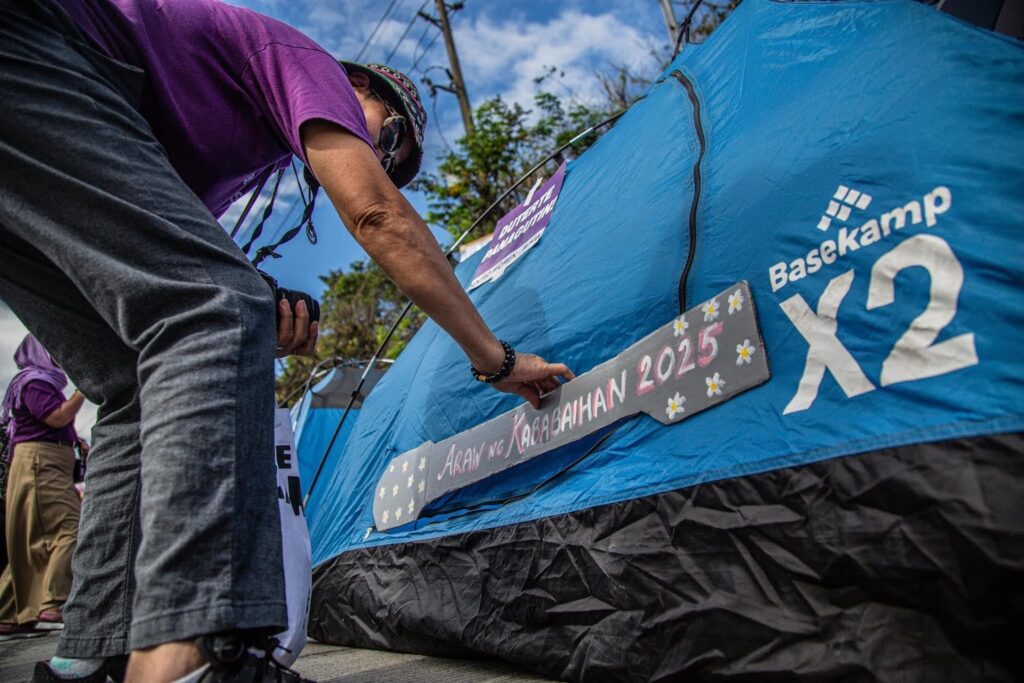
Women’s groups organize a protest action and put up tents in front of the Department of Agriculture. Photo by Del Bañares.
Meanwhile, the League of United Women’s Organizations–Unity of Women for Liberation (LORENA-KAISA KA) mobilized near the Chino Roces Bridge in Manila, with women clasping their main banner with a slogan that underscores the persistent fighting spirit of women in the face of multiple crises. In a statement, KAISA KA foregrounded the urgent need to advance Comprehensive Sexuality Education (CSE), a polarizing issue that recently ignited heated debates in the predominantly Christian Philippines. KAISA KA asserted that “the struggle for CSE is part of the larger struggle for women’s liberation…In a time of deepening crises and intensifying exploitation, the right to bodily autonomy is inseparable from economic justice, health rights, and political participation. Women cannot achieve freedom in a patriarchal system that treats us as reproductive machines while depriving us of scientific knowledge, quality healthcare, and control over our own bodies.”
Various advocates of CSE and sexual and reproductive health and rights also marched the streets of Mendiola on February 5 to defend CSE from disinformation and stress its importance for youth, families, and the nation.
Success stories
Apart from actions that demonstrated the continuing spirit of feminist solidarity and resistance, there were also key victories resulting from broad social movement struggles that represent an important step towards the realization of gender justice.
First among these success stories is that of seven farmer leaders, six of them women, from the village of Sumalo in Hermosa, Bataan. The farmers were falsely accused of non-bailable fraud in 2023 for collecting contributions from members of their community to support their legal campaign for agrarian reform coverage. The farmers, four of whom are elderly women with health issues, were separated from their families and community for two years because of the baseless charges filed against them. But in January 2025, the farmers were finally allowed to post bail by the local court. They are also hoping that the case against them will be dismissed soon, as two other women farmers who were also accused of the same crime were already acquitted since the complainants were unable to present credible evidence.
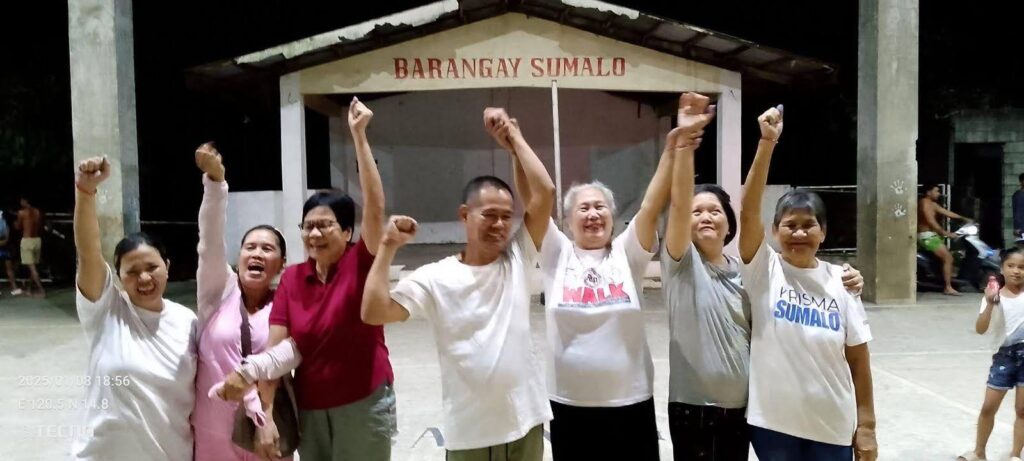
Sumalo farmers facing trumped up charges raise their fists in celebration as they were finally able to go back home after two years of being separated from their community. Photo from Sumalo Village United Farmers Association (SANAMABASU).
Agrarian reform advocates and human rights groups have aptly described the situation in Sumalo village as a humanitarian crisis. The Riverforest Development Corporation (RDC), which has been trying to claim ownership of almost the entire land area of the village, has facilitated the filing of more than 50 fabricated charges against the farmers over the past decade, declared the farmers as illegal occupants that led to the demolition of homes of hundreds of residents, carried out a smear campaign against community leaders, deployed security personnel to intimidate the community and obstruct government procedures for agrarian reform coverage, and installed barbed wires to barricade farmlands and prevent farmers from cultivating their crops. A young man from the village was shot dead by a member of RDC’s security personnel in 2019, while a young woman was raped and was forced to move out of the village out of feelings of shame.
Sumalo’s campaign for land and peasant’s rights has thus become an emblematic case that reflects the nature of contemporary agrarian struggles across the country. While the road to genuine agrarian and social justice remains long for Sumalo, their recent victories—as seen in the dismissal of not just one but multiple fabricated charges—sets an important precedent and serves as a source of strength for many other farmers facing criminalization.
The Sumalo case also demonstrates the importance of international solidarity in advancing social justice. Working with civil society organizations, the Sumalo farmers were able to broaden support from international human rights institutions and social movements. As a result, various United Nations Special Rapporteurs sent an official joint communication to the Philippine government demanding investigations on the Sumalo case and the cessation of various human rights violations. This provided an additional layer of security to the Sumalo farmers and helped abate violence in the community as perpetrators were made aware that they are being monitored by international human rights organizations.
Meanwhile, at the national level, one important victory is the arrest of former President Rodrigo Duterte on March 11, three days after International Women’s Day, through a warrant issued by the International Criminal Court (ICC). Duterte faces charges of crimes against humanity over his bloody drug war that took the lives of almost 30,000 people, including those who were killed through police operations and by vigilantes, based on reports by human rights groups.
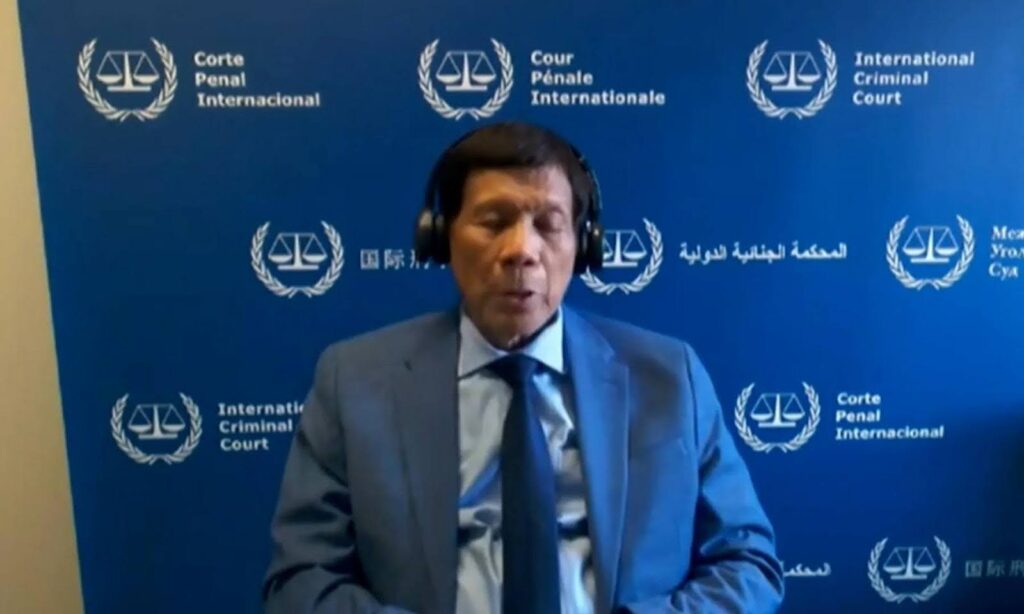
Former President Rodrigo Duterte appears at the first ICC hearing in The Hague by video link. Video screenshot from Al Jazeera.
Duterte’s war on drugs had traumatic impacts on women. According to a report done by Mary Ann Manahan, Jean Enriquez, and Janica Rosales, many women were subjected to “rape-for-freedom,” where “police use their power and authority to force women to have sex to save their partners, [their parents, or themselves] from jail time or death.”
Similarly, a 2019 study by the Philippine Human Rights Information Center (PhilRights) uncovered the deep economic and psychological impacts of the killings on the families of drug war victims. As most of the victims were male adults who were considered family breadwinners, the other adults who were left behind, including wives of the victims, faced greater economic insecurity due to insufficient incomes. This was on top of worrying about their family’s safety and security, relocating themselves out of fear of being targeted by the killers, and providing emotional support to their children while also dealing with their own trauma.
The arrest of Duterte was thus seen by drug war victims, their families, and human rights groups as a critical step towards justice and accountability, as the government’s own reinvestigation that began in 2020 only yielded dismal results. Key to Duterte’s indictment were the testimonies from the brave families of victims as well as victim-survivors who chose to come forward despite the persistent harassment, surveillance, and even death threats that they received. Recounting their experiences was no easy task as it could possibly resurface a lot of trauma that might not have been sufficiently processed through emotional and psychological briefing in the first place.
As fate would have it, the case of Duterte, a macho-fascist who encouraged the use of violence against women especially those who were critical of his government, will be adjudicated by three women judges: Iulia Antoanella Motoc of Romania, Reine Adélaïde Sophie Alapini-Gansou of Benin, and Maria del Socorro Flores Liera of Mexico.
These victories reflect the ever-growing strength of social movements that are not just challenging the status quo but are also paving the way for a more just and equitable future for all women in the Philippines. Though the deeply entrenched and interconnected systems of capitalism, authoritarianism, and patriarchy continue to pose significant challenges to realizing gender justice in the country, feminist movements have tirelessly and fearlessly shed light on the difficult realities faced by women, organized and mobilized communities, built solidarities, and voiced out their demands. The continued struggle for gender justice, fueled by recent victories, is a testament to the power of collective action in confronting and challenging systemic inequalities.


